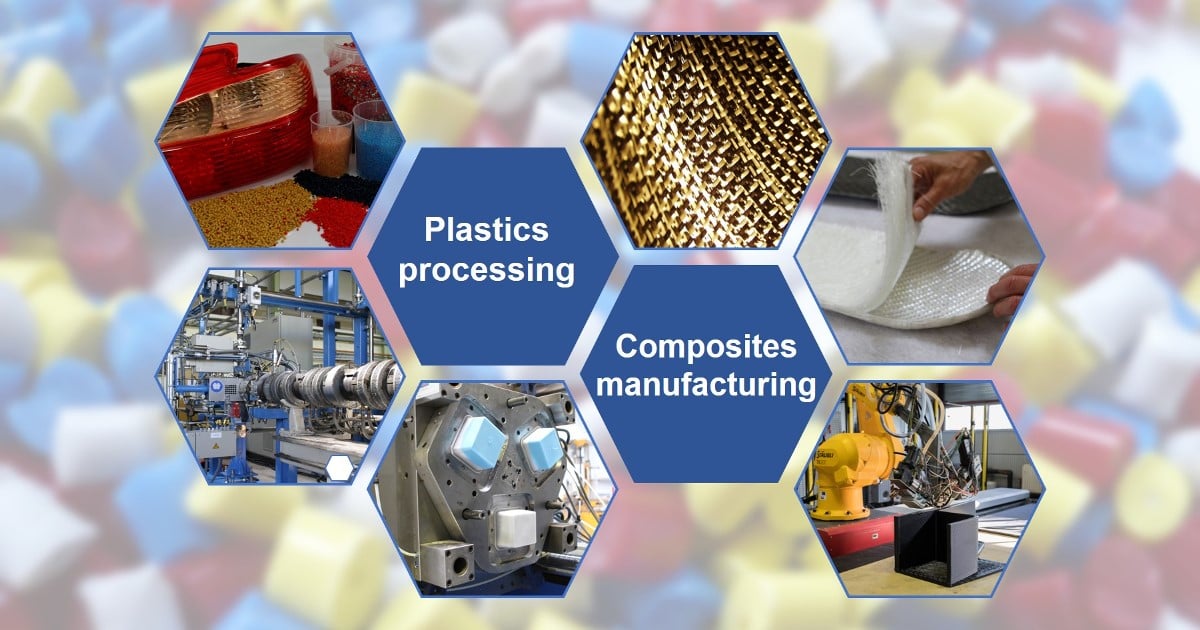Advanced Composites Manufacturing and Plastics Processing
Topic Information
Dear Colleagues,
Environmental and energy concerns and digitalization are currently profoundly reshaping the plastics and composites industry. Manufacturing processes and systems evolve accordingly in order to cost-effectively produce high-performance, high-quality, lightweight, and multifunctional parts with a reduced carbon footprint. All composites manufacturing and polymer processing technologies are concerned with this trend: liquid composite molding (e.g., resin transfer molding and resin infusion/vacuum infusion), automated lay-up (e.g., automated fiber placement and automated tape laying), filament winding, prepreg technology, pultrusion, autoclave, compression molding, film stacking, additive manufacturing/3D printing, injection molding, over-molding/back-molding, extrusion, blow molding, thermoforming, rotational molding, foaming, coating, preforming of textile reinforcement, joining/welding, and mold technologies (i.e. mold making and design).
This Topical Collection welcomes original research articles, state-of-the-art reviews, or short communications on the latest advances in composites manufacturing and plastics processing. Suggested contributions may address new process developments, modeling/simulation, monitoring/control, and performance or application issues, with either experimental or numerical approaches. All types of polymers (thermoplastics, thermosets, and elastomers) and fibers/fillers (glass, carbon, ceramic, mineral, and vegetal) are eligible, whether they come from recycled, bio-based, or fossil feedstocks. Multidisciplinarity is encouraged to cover emerging topics such as smart manufacturing, artificial intelligence applied to manufacturing, data-driven simulations, and digital twins.
Prof. Dr. Patricia Krawczak
Prof. Dr. Ludwig Cardon
Topic Editors
Keywords
- polymer processing
- composites manufacturing
- joining and welding
- additive manufacturing
- process optimization, modelling, and simulation
- manufacturing technology
- smart manufacturing
- digitalization and Industry 4.0
- thermoplastic polymers and elastomers, thermosetting resins, and plastics
- composite materials
- nanocomposites
- fibers, fillers, and textile reinforcement
